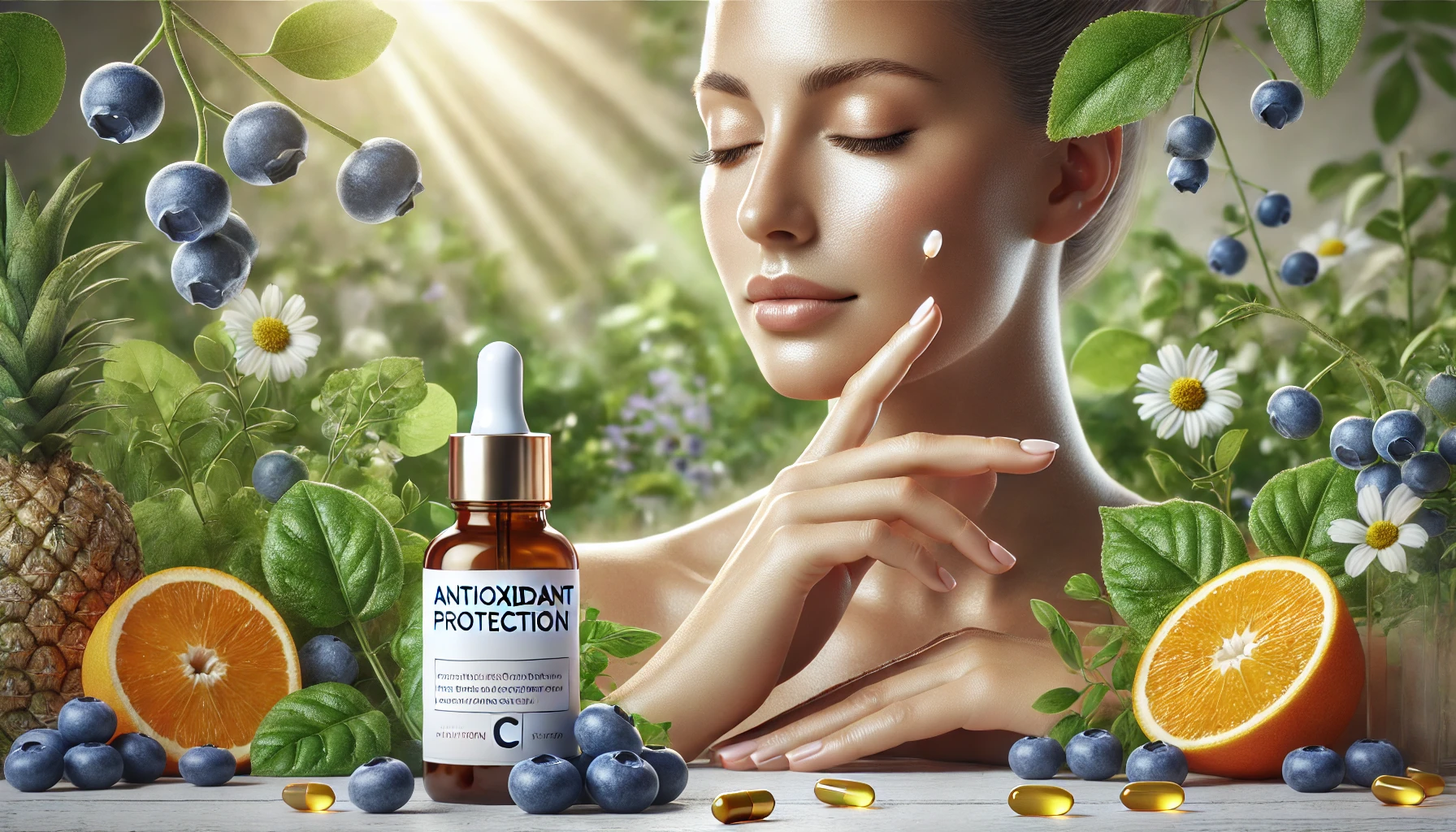Free radicals are bad news for your body — and especially for your skin. While researchers continue to study their effects, one thing is clear: free radicals accelerate the aging process, damage skin structure, and contribute to long-term cellular deterioration.
Let’s break down what free radicals are, how they affect your skin, and how you can protect yourself with the help of antioxidants.
What Are Free Radicals?
Free radicals are unstable molecules formed when oxygen interacts with certain molecules in your body. In the process, they lose an electron and become highly reactive.
To stabilize themselves, they steal electrons from nearby molecules — including proteins, DNA, and skin cells. This sets off a chain reaction of damage known as oxidative stress.
Sources of free radical production include:
- UV rays from the sun
- Pollution and smog
- Cigarette smoke
- Radiation (like X-rays)
- Certain chemicals (e.g., hydrogen peroxide)
How Free Radicals Affect Your Skin
Once free radicals start damaging skin cells, the results show up as:
- Fine lines and wrinkles
- Loss of elasticity and firmness
- Uneven skin tone
- Dullness and rough texture
They target collagen and elastin — the proteins that give your skin its structure — leading to premature aging.
Smoking: A Major Source of Free Radicals
Cigarette smoke is one of the biggest free radical triggers. It causes:
- Pale, dry skin
- Poor circulation
- Increased oxidative stress
- Slower healing and cell regeneration
And if that weren’t enough, smoking also reduces your body’s natural antioxidant reserves, making your skin even more vulnerable.
Environmental & Chemical Exposure
Beyond UV rays and smoke, other environmental factors play a role in generating free radicals:
- Radiation (X-rays, gamma rays)
- Heavy metals (like lead and mercury)
- Dust particles (like asbestos, quartz, and silica)
- Ozone (a strong oxidizer that can become unstable)
While some of these are difficult to avoid completely, knowing their effects can help you take preventive steps.
Antioxidants: The Natural Defense System
Here’s the good news: your body isn’t defenseless. It naturally produces antioxidants — compounds that neutralize free radicals before they cause damage.
Key antioxidants include:
- Vitamin A
- Vitamin C
- Vitamin E
- Flavonoids
- Beta-carotene
- Zinc
- Selenium
- Glutathione
These antioxidants stop the chain reaction triggered by free radicals and protect your skin cells, DNA, and collagen.
Topical Antioxidants: Skincare That Fights Back
Many modern moisturizers and serums are enriched with antioxidants to help shield your skin from environmental stress.
While results may not be instant, using antioxidant-based skincare consistently can:
- Improve skin resilience
- Reduce signs of aging over time
- Brighten and protect the complexion
Look for products with:
- Vitamin C serum (great for morning use)
- Vitamin E (ideal for nourishing and healing)
- Green tea extract
- Resveratrol or CoQ10
Boosting Antioxidants Through Diet
You can also increase antioxidant levels in your body through what you eat. Aim to include:
- Colorful fruits and vegetables (berries, carrots, leafy greens)
- Nuts and seeds (like almonds and sunflower seeds)
- Whole grains
- Green tea and herbal infusions
A healthy, antioxidant-rich diet will not only improve your internal health, but will also reflect in your skin’s glow, tone, and elasticity.
Final Thoughts: Should You Join the Anti-Free Radical Movement?
Science may not have unlocked every secret of free radicals, but the evidence is clear: antioxidants are your best defense.
They won’t reverse aging overnight, but they will help:
- Slow down skin deterioration
- Protect against external aggressors
- Preserve your youthful look longer
So yes — it’s worth jumping on the anti-free radical train. Whether through your diet or your skincare routine, antioxidants give your skin the armor it needs to stay strong, smooth, and radiant.
